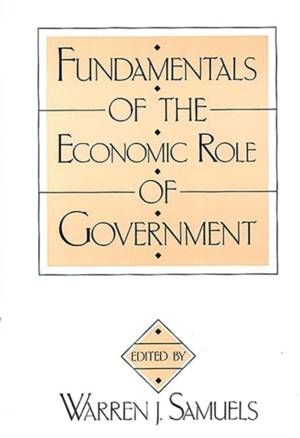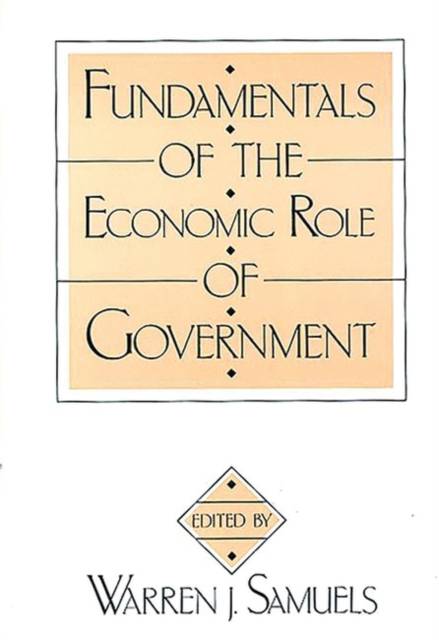
- Retrait gratuit dans votre magasin Club
- 7.000.000 titres dans notre catalogue
- Payer en toute sécurité
- Toujours un magasin près de chez vous
- Retrait gratuit dans votre magasin Club
- 7.000.0000 titres dans notre catalogue
- Payer en toute sécurité
- Toujours un magasin près de chez vous
Description
This study brings an original slant to the complex and much-debated question of the proper role of government in the economic sphere. Representing a broad range of disciplinary and ideological approaches, the authors identify and explore the most fundamental propositions concerning the economic role of government, as well as the generalizations, major themes, and conclusions that can be drawn from them. The essays focus on the deep levels of political and economic organization and on the values and underlying assumptions that are the bases of the institution of government.
Written by a distinguished group of specialists, the work approaches the issue multidimensionally--from the standpoint of social science, history, law, and philosophy. Not mere ideological exercises, the essays focus on the deep levels of political and economic organization and on the values and underlying assumptions that are the bases of the institution of government. Connections between the government's economic role and ideology, free enterprise, power politics, and group interests are considered together with the constitutional implications of governmental economic powers. Other issues addressed include the changing economic role of government, contradictions and ambiguities in the government's economic functions, rules governing economic activity, and the role of economists in government. Providing a diversity of viewpoints and a wealth of fresh insights, this book can be used in graduate and undergraduate courses in economics, political science, philosophy, and law, and will appeal to the informed general worker.Spécifications
Parties prenantes
- Auteur(s) :
- Editeur:
Contenu
- Nombre de pages :
- 272
- Langue:
- Anglais
- Collection :
Caractéristiques
- EAN:
- 9780313267789
- Date de parution :
- 11-09-89
- Format:
- Livre relié
- Format numérique:
- Genaaid
- Dimensions :
- 164 mm x 244 mm
- Poids :
- 616 g

Les avis
Nous publions uniquement les avis qui respectent les conditions requises. Consultez nos conditions pour les avis.






